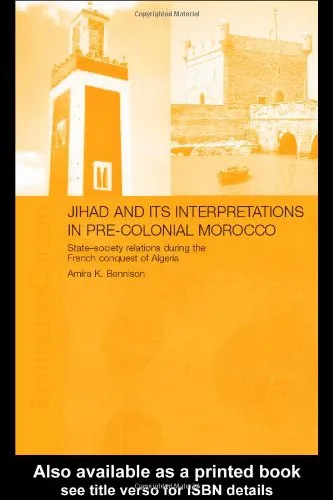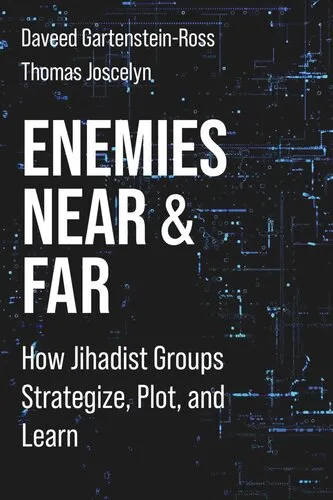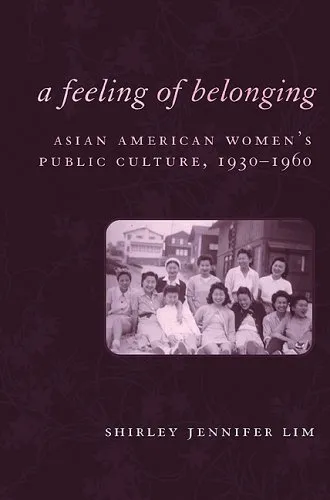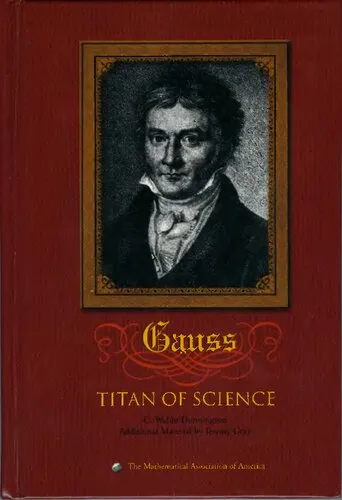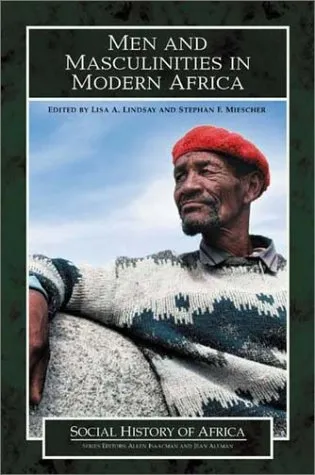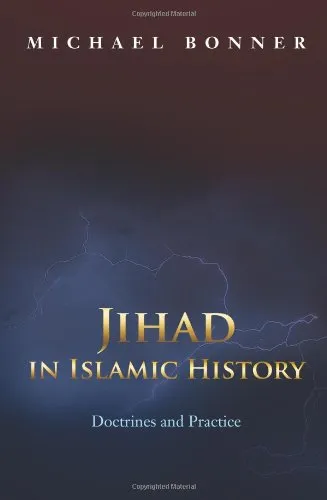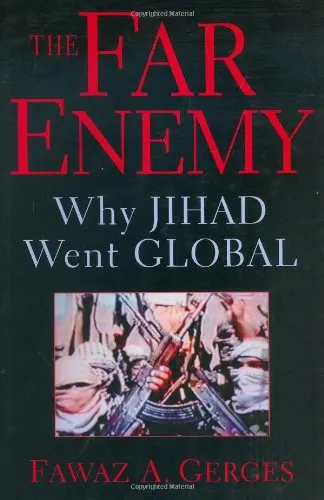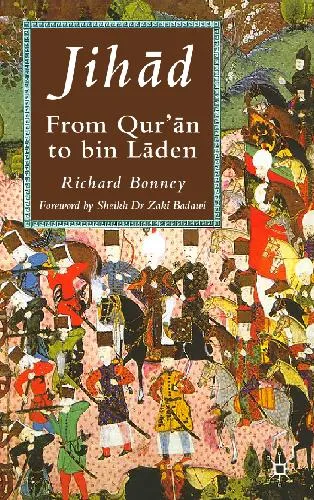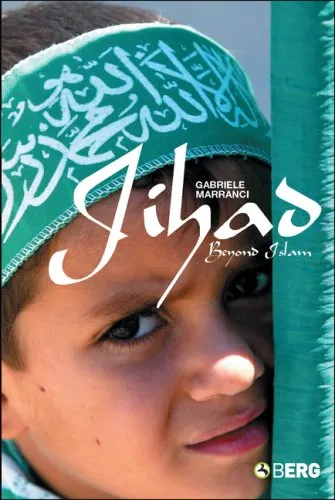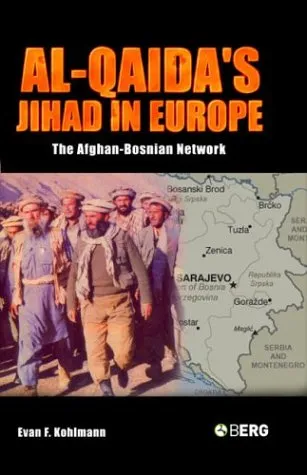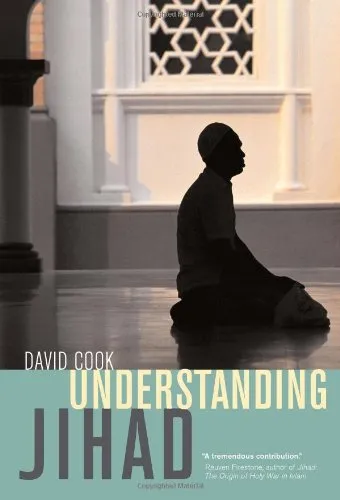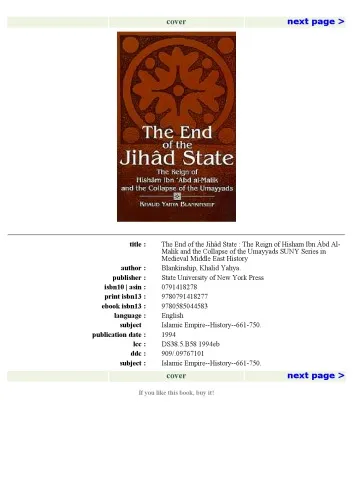Jihad and its Interpretation in Pre-Colonial Morocco: State-Society Relations during the French Conquest of Algeria
4.5
بر اساس نظر کاربران

شما میتونید سوالاتتون در باره کتاب رو از هوش مصنوعیش بعد از ورود بپرسید
هر دانلود یا پرسش از هوش مصنوعی 2 امتیاز لازم دارد، برای بدست آوردن امتیاز رایگان، به صفحه ی راهنمای امتیازات سر بزنید و یک سری کار ارزشمند انجام بدینکتاب های مرتبط:
معرفی کتاب
کتاب Jihad and its Interpretation in Pre-Colonial Morocco: State-Society Relations during the French Conquest of Algeria اثری تحلیلی و برجسته از امیره بنیسن است که به یکی از مهمترین موضوعات تاریخی و فکری جهان اسلام پرداخته است. این کتاب نقش و جایگاه جهاد را در مناسبات دولت و جامعه مراکش پیش از استعمار، در مقابل تأثیر اشغال فرانسه بر الجزایر، بررسی و تحلیل میکند. به طور خاص، هدف این تحقیق روشن ساختن تفسیرهای متفاوت جهاد و تأثیر آن بر سیاست و روابط اجتماعی در مراکش قرن نوزدهم است.
خلاصه کتاب
این کتاب در نگاه اول روایتی تاریخی است، اما در واقع اثری بسیار فراتر از یک مطالعه تاریخنگاری ساده به حساب میآید. نویسنده با بهرهگیری از منابع تاریخی، فقهی و سیاسی دست اول، زمینههای ایدئولوژیک جهاد را در فرهنگ و سیاست مراکش و تعامل آنها با کنشهای نظامی، دینی و استعماری بررسی کرده است. در این فرآیند، کتاب رابطه بین دولت و جامعه را در مراکش پیش از استعمار بررسی کرده و نشان میدهد چگونه مفهوم جهاد ابزاری برای یکپارچگی اجتماعی، مقاومت سیاسی یا حتی ساماندهی به رقابتهای قدرت بوده است. همچنین نشان داده شده که چگونه تجربیات الجزایر تحت اشغال فرانسه، بر دیدگاه رهبران مراکش تأثیر گذاشته است. نویسنده به تفصیل به نقش علمای دینی، حکام مراکش و تأثیرات منطقهای و خارجی پرداخته و تصویری جامع از جدلهای موجود در باب جهاد ترسیم کرده است.
یکی از نقاط قوت این کتاب، تحلیل چندوجهی و پیچیدهای است که از جهاد بهعنوان یک مفهوم دینی و همچنین یک ابزار سیاسی ارائه میدهد. امیره بنیسن نه تنها به منابع اسلامی و فقهی مراجعه کرده بلکه از آرشیوهای تاریخی و اسناد سیاسی نیز بهره گرفته تا تصویری کامل و مستند ارائه دهد.
نکات کلیدی
- روشهای مختلف تفسیر مفهوم جهاد در مراکش پیش از استعمار
- رابطه بین ایدئولوژی دینی و مشروعیت سیاسی در جهان اسلام
- نقش استعمار فرانسه در تحولات فکری و سیاسی مراکش و الجزایر
- چگونگی استفاده دولتها از گفتمان دینی برای تقویت قدرت خود
- تأثیر علمای دینی در شکلدهی به افکار عمومی و جهتگیریهای سیاسی
نقل قولهای مشهور از کتاب
"جهاد نه تنها ابزاری برای مقاومت در برابر سلطه خارجی بود، بلکه بستری برای بازتعریف روابط اجتماعی و تمرکز قدرت درونی نیز محسوب میشد."
"در مراکش پیش از دوران استعمار، مفهوم جهاد هرگز یک گفتمان ایستا نبود، بلکه پویایی آن منعکس کننده تحولات داخلی و همچنین فشارهای خارجی بود."
"فهم عمیق جهاد در مراکش بدون در نظر گرفتن تأثیر اشغال الجزایر امکانپذیر نیست."
چرا این کتاب اهمیت دارد؟
کتاب Jihad and its Interpretation in Pre-Colonial Morocco به دلیل ارائه تحلیلی دقیق و جامع از یک مفهوم کلیدی در تاریخ و فرهنگ اسلامی، از اهمیت ویژهای برخوردار است. این کتاب به خوانندگان کمک میکند تا درک بهتری از نقش ایدئولوژیهای دینی در تحولات تاریخ سیاسی و اجتماعی جوامع اسلامی داشته باشند. همچنین مطالعه این کتاب برای پژوهشگران علوم تاریخی، اسلامی و حتی مطالعات پسااستعماری ضروری و آموزنده است. این اثر با ارائه جزئیات دقیق و استدلالهای قوی، مخاطب را به یک سفر فکری عمیق درباره مفهومی میبرد که همچنان در جهان معاصر نقش برجستهای دارد. تأکید کتاب بر تأثیر متقابل سیاست بینالملل و ایدئولوژیهای محلی نیز آن را برای تحلیلهای میانرشتهای جذابتر میسازد.
علاوه بر این، دیدگاه مقایسهای نویسنده در بررسی تأثیرات استعمار فرانسه بر الجزایر و بازتاب آن در سیاستهای مراکش، موجب شده تا این کتاب فراتر از مرزهای جغرافیایی و تاریخی مراکش مورد توجه قرار گیرد. این نگاه فراگیر و عمیق، اثری بیبدیل در مطالعات اسلام، مغرب عربی و تاریخ استعمار ایجاد کرده است.
Introduction
The book, Jihad and its Interpretation in Pre-Colonial Morocco: State-Society Relations during the French Conquest of Algeria, explores the complex interplay between politics, religion, and society in pre-colonial Morocco during one of the most turbulent periods in North African history. Authored by Amira Bennison, this work offers a deep dive into how the concept of jihad was redefined and mobilized by the Moroccan state and its citizens as a reaction to the encroachments of imperial France in neighboring Algeria. Using a rich array of historical sources including religious treatises, administrative records, and oral histories, Bennison captures the dynamics of Moroccan society's response to colonial aggression, while critically engaging with broader debates on state-society relations and Islamic ideologies during the 19th century.
In this context, jihad is not merely studied as a religious phenomenon—it is also understood as a political tool, a unifying force, and a contested framework within Moroccan society. This contextual study sheds light on how the interpretation of jihad evolved over time and how it was shaped by the internal dynamics of Morocco and the external pressures of colonial expansion in the Maghreb. Bennison's analysis brings forth a nuanced understanding of pre-colonial Moroccan governance, highlighting how statesmen, religious scholars, tribal leaders, and ordinary citizens negotiated their roles within the framework of an impending colonial threat. This book is crucial for anyone seeking to understand the historical roots of modern Moroccan statehood, North African geopolitics, and the interplay of religion and politics in Islamic societies.
Detailed Summary of the Book
Structured around a meticulously researched historical narrative, the book spans a critical period during the 1830s and 1840s, when French colonial ambitions in Algeria began to spark regional consequences. Bennison approaches this period through a variety of lenses, drawing attention to key themes such as the role of Islamic scholarship, the importance of tribal dynamics, and the strategies employed by the Moroccan Sultanate to maintain sovereignty and unity.
The central thesis of the book revolves around how the concept of jihad was appropriated by different actors to mobilize resistance against external threats while simultaneously reinforcing internal cohesion. The examination of Moroccan sultans as pivotal figures in crafting religious and political narratives is particularly noteworthy, as it showcases how governance was deeply intertwined with religious legitimation. Additionally, the book delves into the particular mechanisms adopted by local tribes and religious scholars, uncovering their respective interpretations and strategies in response to the French conquest of Algeria.
The book also does not shy away from addressing conflicts and contradictions within Moroccan society. It demonstrates how the idea of jihad was sometimes contentious—debated or resisted by different societal factions depending on their own political interests or religious interpretations. In doing so, Bennison presents a balanced and multi-dimensional view of this rich historical tapestry.
Key Takeaways
- Jihad in pre-colonial Morocco was a multi-faceted concept that carried political, spiritual, and social significance.
- The Moroccan Sultanate employed religion as a critical tool for state-building and resistance against colonial powers.
- Internal divisions, such as tribal tensions and differing religious views, shaped Morocco’s response to external threats.
- The French conquest of Algeria had significant ripple effects across North Africa, influencing state-society relations in neighboring regions like Morocco.
- Historical studies of jihad and statehood reveal insights into the resilience and adaptability of pre-modern Islamic societies.
Famous Quotes from the Book
"Jihad found its meaning not solely as an act of warfare, but as a unifying ethos—one that bridged tribal allegiances, religious duty, and the political legitimacy of the sultanate."
"The interpretation of jihad in pre-colonial Morocco reveals a society at the crossroads of tradition and modernity, grappling with its collective identity in the face of imperial conquest."
"In the context of Morocco’s resistance, the sultan’s invocation of jihad was as much about asserting authority domestically as it was about defending against the French advance."
Why This Book Matters
This book matters because it contributes to the broader understanding of how Islamic societies historically reacted to colonial aggression and the ways in which religion and politics are intertwined. Bennison’s study not only dispels simplistic understandings of jihad as mere holy war, but it also offers a lens into the socio-political structures of pre-colonial Morocco.
Furthermore, this book is essential for scholars and readers interested in North African history, Islamic political thought, and the emergent discourse on colonialism and resistance. By exploring these themes, Bennison provides a critical resource for better understanding contemporary issues in the region, such as nationalism, religious reform, and state-society relations. It also serves as a reminder of the historical complexities of Islamic governance and the adaptability of religious and political concepts in the face of change.
دانلود رایگان مستقیم
شما میتونید سوالاتتون در باره کتاب رو از هوش مصنوعیش بعد از ورود بپرسید
دسترسی به کتابها از طریق پلتفرمهای قانونی و کتابخانههای عمومی نه تنها از حقوق نویسندگان و ناشران حمایت میکند، بلکه به پایداری فرهنگ کتابخوانی نیز کمک میرساند. پیش از دانلود، لحظهای به بررسی این گزینهها فکر کنید.
این کتاب رو در پلتفرم های دیگه ببینید
WorldCat به شما کمک میکنه تا کتاب ها رو در کتابخانه های سراسر دنیا پیدا کنید
امتیازها، نظرات تخصصی و صحبت ها درباره کتاب را در Goodreads ببینید
کتابهای کمیاب یا دست دوم را در AbeBooks پیدا کنید و بخرید
1496
بازدید4.5
امتیاز0
نظر98%
رضایتنظرات:
4.5
بر اساس 0 نظر کاربران
Questions & Answers
Ask questions about this book or help others by answering
No questions yet. Be the first to ask!
